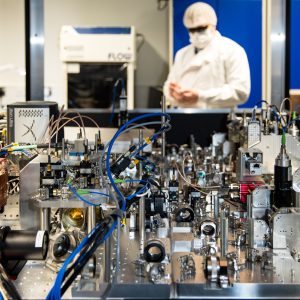
Microsoft has unveiled Majorana 1, a quantum chip incorporating a Topological Core architecture designed to advance quantum computing capabilities. The tech giant stated that this development could lead to quantum computers capable of addressing complex industrial problems within a shorter timeframe than previously thought.
The chip is built using a topoconductor, a material that enables the observation and control of Majorana particles to create qubits with improved reliability and scalability. Microsoft noted that, similar to how semiconductors enabled modern electronics, this material could support the development of quantum systems. These systems could scale to one million qubits, a level considered necessary for handling industrial and scientific challenges, said Redmond.
According to Microsoft, the Majorana 1 processor’s architecture is designed to fit a million qubits into a compact chip. The company stated that reaching this scale is essential for applying quantum computing to areas such as microplastic breakdown and the development of self-repairing materials for various industries. Microsoft asserted that the computational power of a one-million-qubit quantum system would exceed that of all current computers combined.
“Whatever you’re doing in the quantum space needs to have a path to a million qubits,” said Microsoft technical fellow Chetan Nayak. “If it doesn’t, you’re going to hit a wall before you get to the scale at which you can solve the really important problems that motivate us,” Nayak said. “We have actually worked out a path to a million.”
A topoconductor, or topological superconductor, is described as a material that forms a unique topological state, distinct from solids, liquids, or gases. Microsoft claims this enables the creation of topological qubits, which are expected to be more stable and responsive to digital control compared to existing qubit designs.
The company stated that developing this quantum chip required the design of a materials stack composed of indium arsenide and aluminium, assembled at the atomic level. This process was intended to facilitate the formation of Majorana particles, which have properties suited for quantum computing applications.
The Topological Core is described as incorporating error resistance at the hardware level, aiming to improve system stability. Microsoft stated that current quantum computing methods rely on finely tuned analogue control of qubits, which presents challenges for large-scale implementation. In contrast, the approach used in Majorana 1 allows for digital qubit control, a method that the company claims simplifies quantum computing operations.
Microsoft has reported placing eight topological qubits on a chip with a design intended to support scaling up to one million qubits. The company positioned this as a step in its long-term efforts to develop quantum computing technology — one welcomed by Entrust’s Iain Beveridge in the context of the perceived threat that quantum computers pose to the security of conventional encryption techniques.
“Organisations need to prioritise their post-quantum preparations, putting strategies in place to ready their security infrastructure for the transition,” said the senior products and solutions manager at the firm. “The reality on the ground, however, indicates a worrying lack of readiness: 27% of organisations have yet to consider the post-quantum threat, and 23% are aware but haven’t started planning. Hopefully, the publicity which Microsoft’s announcement will generate will encourage organisations to ready their security infrastructure for the transition as soon as possible.”
Competitor advances in quantum computing
While Microsoft pushes forward with its Majorana 1 quantum chip, other industry leaders have unveiled competing technologies aimed at scaling quantum capabilities and improving computational efficiency.
In December 2024, Google introduced Willow, a 105-qubit superconducting processor engineered to enhance quantum error correction, a critical hurdle in the race towards practical quantum computing. Google stated that Willow completed a computational task in under five minutes, a problem that would take the world’s fastest supercomputers an estimated 10 septillion years to solve.
IBM’s Condor, unveiled in December 2023, represents another significant push in quantum computing innovation. Featuring 1,121 qubits, Condor is IBM’s largest quantum processor to date, designed to tackle complex computations with improved scalability.






